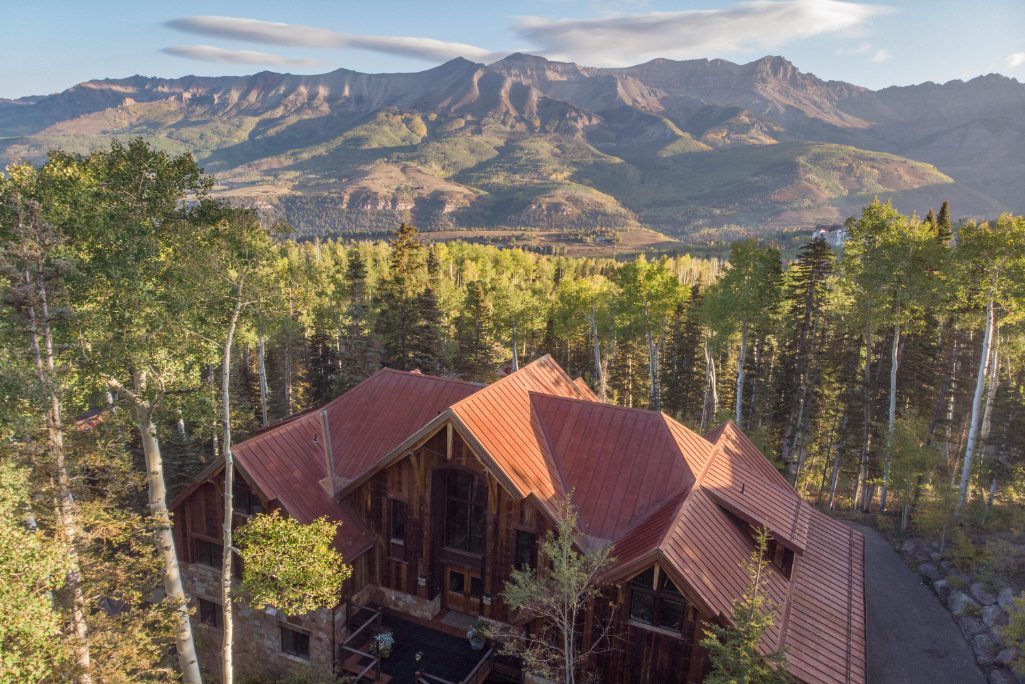Skift Take
Optimism about recovery, a wariness about the tricky nuances of each sector, and suppliers demanding respect from online brands were among the themes at the Skift Short-Term Rental and Outdoor Summit. Plus: the past year's boom isn't a one-off.
The short-term rental, vacation home rental, and outdoor adventure sectors have been the most resilient parts of the travel industry during the pandemic. Brands have used recent waves of consumer and investor interest to raise their games and ambitions. Yet questions remain for all three segments.
Skift as a brand has been wondering: Is the biggest story of the past year about consumers adopting new behaviors and expectations that will create lasting breaks from the past? Or is the story that the crisis has sped up and intensified trends that had already been ongoing?
Overall, one of the main takeaways from the Skift Live Short-Term Rental and Outdoor Summit, which took place as a virtual event on May 19, is that these fast-growing segments have nuances in their business dynamics that can trip up players coming from the outside.
Optimism about the recovery and optimism about long-term growth were other themes. We also heard that the owners of inventory in these markets demand more respect from online travel agencies and will reward the ones that respect them first.
Optimistic Notes About the Recovery
Cautious optimism seemed to be the catchphrase of analysts when considering this year’s outlook.
On the vacation rental front, average daily rates in the U.S. are more than 10 percent higher this summer than last year’s strong numbers, said Jason Sprenkle of Key Data, who presented survey results pulled from the intelligence service’s 2,300 property management companies. But European markets are, on average, still well behind pre-pandemic nightly rates.
“The performance of vacation rentals and short-term rentals is very far off being back to pre-pandemic levels,” noted Wouter Geerts of Skift Research. He offered several data-filled slides showing how performance has fluctuated in recent months in many countries and within countries at the market-by-market level.
While some destinations, such as the Outer Banks of North Carolina, have mostly sold out of vacation rental inventory, other markets in the U.S. and abroad are either struggling or are seeing bookings rise and fall as events change. For context, read the report, “The Short-Term Rental Landscape Will Never Be the Same.”
Urban markets, which under-indexed last year, are set to do better this year, though the average length of stay will likely revert to past norms. Sonder, which offers branded stays in a mix of licensed short-term rentals and hotels, said urban markets in the U.S. and Europe might not regain 2019 levels until 2023.

A session on How Outdoor Travel Startups Are Meeting Consumer Demand at Skift’s Summit. Source: Skift.
Respecting Vacation Rental Hosts and Managers
Heading into the Summit, Skift wondered “whose strategy will prove to be more fruitful: Airbnb’s pledge to downplay professional hosts, Booking.com’s focus on signing property management companies, or Vrbo’s hybrid we-love-you-both approach?”
Airbnb has been increasing its share of professionally managed vacation rental bookings by taking share from direct bookings, according to Sprenkle of Key Data.
In 2019, Airbnb accounted for only 11 percent of the guest check-ins made at the 2,300 property management companies worldwide studied by Key Data. Airbnb has boosted its take to 20 percent, mostly at the expense of direct booking volume. Yet Airbnb still has work to do. It continues to mostly serve only lower-value rentals, which is why it is contributing only 13 percent to overall revenue for professional property managers.
Vrbo, meanwhile, has kept its same share of about 22 percent to 23 percent of both guest check-ins and unit revenue at professional management companies between 2019 and today. Booking.com, in contrast, has been less than a 2 percent share of volume and hasn’t been gaining as much traction in the professionally managed, whole-home vacation rental segment as its executives have implied.

Top boss of Vrbo Jeff Hurst speaks with Executive Editor Dennis Schaal at the Summit. Source: Skift.
“We consolidated our U.S. position around the Vrbo brand,” Hurst said. “That’s allowed us to grow our awareness and to basically grow the presence of our proposition… which focuses on complex family travel.”
“We think we’re taking share in all our core markets: mountain markets, beach markets, river and lake markets,” Hurst said. “There’s been a lot of tailwind at this moment. But we believe a lot of that share gain is sticky.”
For context, read: Expedia’s Vrbo Warns of Limited Supply at Summer Hotspots.
The Nuances Can Trip Up New Players
One of the recurring themes of the Summit was that people who have succeeded in selling one type of travel product, such as hotels, can stumble by making mistaken assumptions about a new sector, such as outdoor adventure or vacation rentals.
A case in point is Marriott. Many hoteliers are used to the idea of online travel agencies competing to get equally good rates for rooms on the same terms. The concept is called “rate parity.”
Marriott has appeared to try to map rate parity onto its vacation rental contract terms, including non-compete clauses and price parity where such a practice is legal, as Skift reported in recent weeks. But doing that has proven tricky because the vacation rental industry has evolved differently from hotels.
“With the dynamic guest fee on Airbnb and Vrbo, the property manager doesn’t know what the guest actually pays,” noted Amy Hinote, founder of VRMintel. That makes “rate parity” difficult.“There’s lots of nuance there,” said Jennifer Hsieh, vice president, Homes & Villas by Marriott International. “What we often look for when we work with property managers is that they’re always fair about how they distribute their fees and rates. As long as they’re equitable, and we’re advocating for our customers collectively, I think we’re in a good place.”
For more, read: Vacation Rental Brands Consult the Hotel Playbook Ahead of Summer Surge.
Another example of nuance catching companies by surprise is Airbnb. It assumed that its mastery of the short-term rental market would translate smoothly into mastering the vacation rental market. But nuances tripped it up.
Airbnb hasn’t been good at onboarding the most desirable supply of whole home inventory in destination and resort markets.
“If you’re a professional property manager with 1,000 properties under management, you have to use your operating system, check-in system, billing system,” said Carl Shepherd, who co-founded HomeAway, which Expedia Group bought and mostly folded into Vrbo. Shepherd said these managers don’t want to adapt to Airbnb’s technical and procedural quirks.
On the supply side, Vrbo claims to be fending off Airbnb’s encroachment in the whole home destination market. Hurst said property managers contacted it with complaints about Airbnb’s policies and practices and the types of guests they send. In the past nine months, it has worked more assertively to win customers disappointed with Airbnb as a distribution channel.
Yet Vrbo has to watch out for nuanced differences between the segments of individual homeowners versus professional property managers.
There’s a vast segment of second homes that are owned by individuals who only want to rent out their places for small periods, such as perhaps six weeks a year. This type of owner is much more likely to find it easy to use Airbnb than a professional property manager, and Airbnb could suck up that inventory.
“Vrbo could keep that inventory if they return their focus to helping that person sell their six weeks,” Shepherd said.
The Boom Is Here to Stay
Ultimately the threads of discussion throughout the summit tended to land on the side of seeing the past two years as being about the crisis accelerating trends that had already been ongoing. That means the dynamics at play today are much more likely to be enduring and impactful than some analysts had expected.
When challenged whether a rise in recreational vehicle rentals was a one-time blip, Young of Outdoorsy said consumers discovered both how much easier it is now to plan outdoor travel than it used to be and how much more fulfilling it can be in a time of growing digital frenzy.
On that point, if the rise of professionalized branded stays at short-term rentals is here to stay, how should hotel companies respond?

Laurence Tosi of WestCap Group and investment partner Allen Mask of CoLab Group in conversation with Skift Research’s Senior Research Analyst Seth Borko. Source: Skift
“Sonder has built a use case that didn’t exist before, and it’s not one hotels I think can emulate,” said Laurence Tosi, a former chief financial officer of both Airbnb and Blackstone Group (which had invested in Hyatt) and now an investor in Sonder.
Tosi said one hotel group executive said he planned to build something similar to Sonder and Tosi was incredulous. It wouldn’t make sense for the company to hire a bunch of data scientists to play catch up in the technology game and then acquire inventory that would compete against their franchisees in many markets. For context, read: Will It Be Airbnb, Sonder — and Then Everyone Else?
In the outdoor sector, major online travel brands might just see another category of content to sweep up under their umbrella. But the products often have many nuances that mean consumers prefer to book with sites and apps focused on their particular needs. For more, see: Outdoor Travel Firms Get Creative to Hook First-Timers on Fresh Air.
Dwell Newsletter
Get breaking news, analysis and data from the week’s most important stories about short-term rentals, vacation rentals, housing, and real estate.
Have a confidential tip for Skift? Get in touch
Tags: adventure tourism, adventure travel, airbnb, expedia group, outdoor tourism, outdoor travel, short-term rentals, skift live, skift short-term rental summit, sonder, stro2021, vacation rentals, vrbo
Photo credit: A home in Sedona, Arizona, with a view of the Red Rock terrain, available via Marriott Homes and Villas. Marriott Homes and Villas

